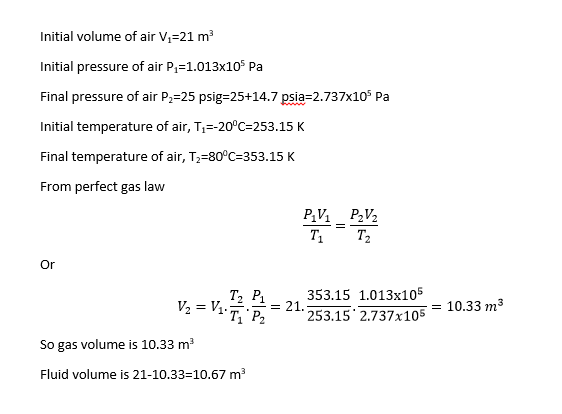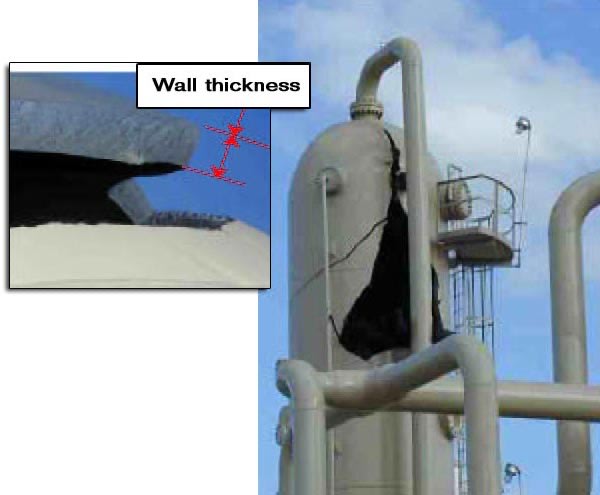Keegan4123
Petroleum
Hi Everyone,
I am working on building a task list and work steps for a job regarding a vessel and tank loading. We don't have an engineer on staff because this stuff rarely comes up but I am hoping someone can point me in the direction of a correct formula. I am thinking the ideal gas law principles apply but I could be way off base.
I am trying to determine the end volume of a vessel after the having atmospheric air compressed by a volume of liquid.
We will have a vessel full of atmospheric air, and need to fill the vessel with a volume of fluid compressing the air to a max of 20-25psi. We need to figure out the estimated volume of fluid it would take to bring it up to that 20-25psi.
Known Variables:
Vessel volume is 21m3
Fluid Temp is 80 deg C
Maximum vessel pressure is 20-25psi
Ambient outside temp is -20deg c
Vessel walls 316 stainless however (no value for metal stretch or deformation to be used)
Unknown Variables
Fluid volume
Any help or a dummies' lesson in how to calculate this would be greatly appreciated.
Keegan
I am working on building a task list and work steps for a job regarding a vessel and tank loading. We don't have an engineer on staff because this stuff rarely comes up but I am hoping someone can point me in the direction of a correct formula. I am thinking the ideal gas law principles apply but I could be way off base.
I am trying to determine the end volume of a vessel after the having atmospheric air compressed by a volume of liquid.
We will have a vessel full of atmospheric air, and need to fill the vessel with a volume of fluid compressing the air to a max of 20-25psi. We need to figure out the estimated volume of fluid it would take to bring it up to that 20-25psi.
Known Variables:
Vessel volume is 21m3
Fluid Temp is 80 deg C
Maximum vessel pressure is 20-25psi
Ambient outside temp is -20deg c
Vessel walls 316 stainless however (no value for metal stretch or deformation to be used)
Unknown Variables
Fluid volume
Any help or a dummies' lesson in how to calculate this would be greatly appreciated.
Keegan


